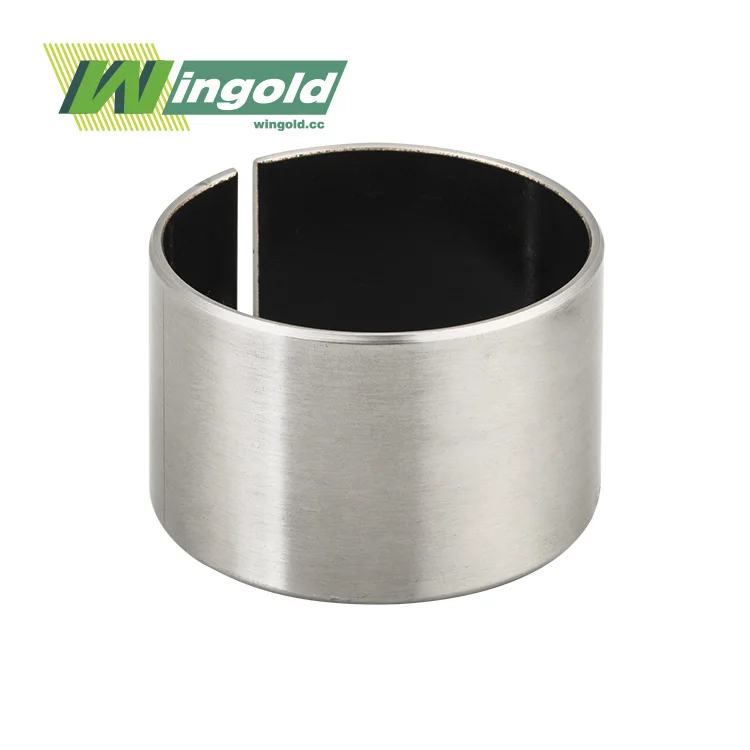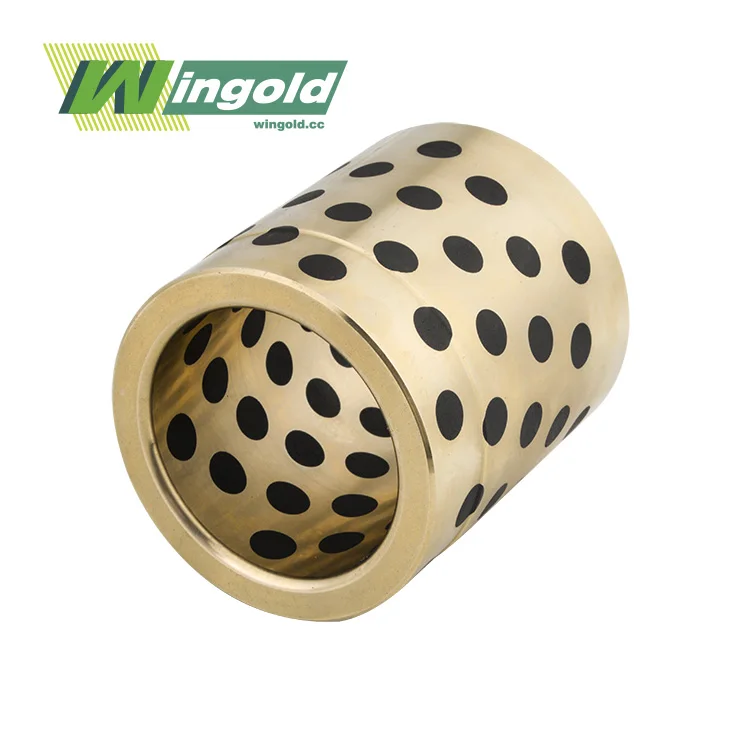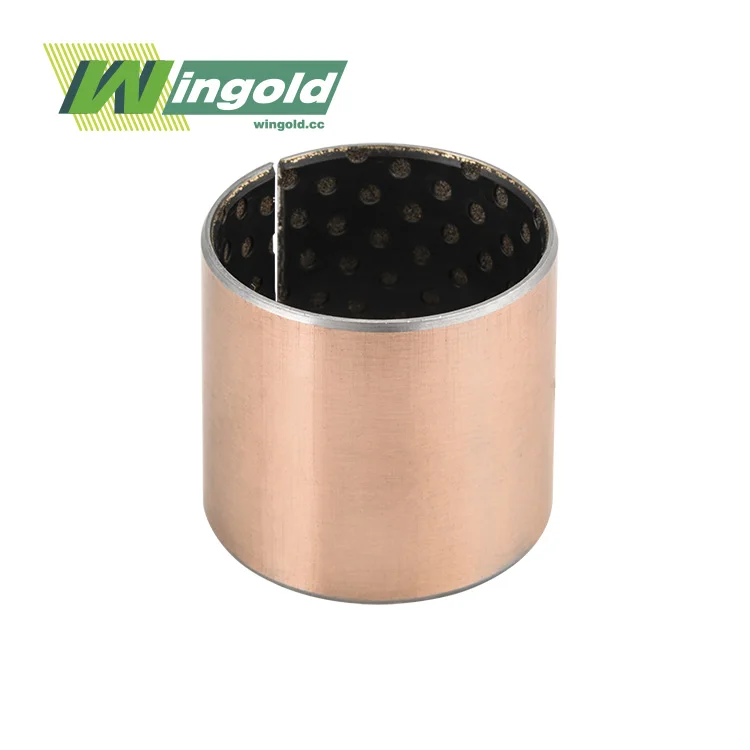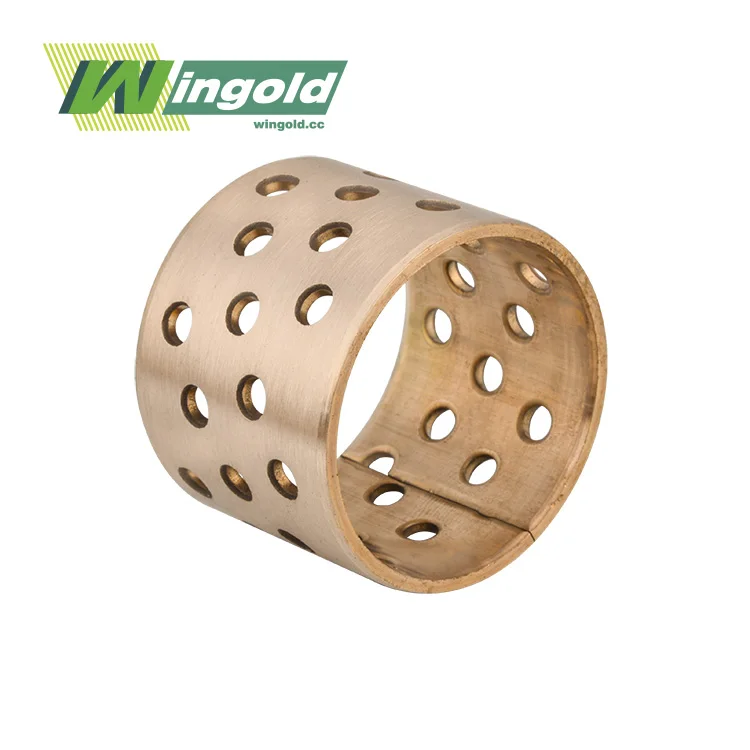Comprehending Bronze Self Lubricating Bearings

Composition and Design
Bronze self lubricating bearings are meticulously engineered components that combine the durability of bronze alloys with innovative self-lubrication technology. These bearings are typically constructed using high-density copper alloy strips as the base material, which provides excellent strength and wear resistance. The surface of these bearings can be customized with diamond or hemispherical oil holes and oil grooves, enhancing their self-lubricating properties.
The unique composition of these bearings includes embedded solid lubricants within the bronze matrix. This design allows for continuous lubrication throughout the bearing's operational life, eliminating the need for external lubrication systems. The result is a bearing that can operate efficiently in environments where traditional lubrication methods may be impractical or ineffective.
Performance Characteristics
Bronze self lubricating bearings boast impressive performance characteristics that make them suitable for a wide range of applications. They can withstand load capacities of up to 140 MPa, making them ideal for heavy-duty industrial machinery. The operational temperature range of these bearings is remarkably wide, spanning from -40°C to 150°C, ensuring reliable performance in both extremely cold and hot environments.
One of the standout features of these bearings is their low friction coefficient, typically ranging between 0.05 and 0.15. This low friction translates to reduced wear and energy consumption, contributing to the overall efficiency of the machinery. The wear rate of bronze self lubricating bearings is also notably low, often less than 5 µm/km, which contributes to their extended service life.
Advantages in Harsh Environments
Corrosion Resistance
One of the primary advantages of bronze self lubricating bearings in harsh environments is their exceptional corrosion resistance. The bronze alloy used in these bearings naturally forms a protective patina when exposed to corrosive elements, shielding the underlying metal from further degradation. This inherent corrosion resistance makes these bearings particularly suitable for marine applications, chemical processing plants, and other environments where exposure to corrosive substances is common.
In saltwater environments, for instance, bronze self lubricating bearings outperform many other bearing types. They can withstand the corrosive effects of salt and maintain their structural integrity and functionality over extended periods. This resistance to corrosion not only extends the life of the bearings but also reduces the frequency of maintenance and replacement, leading to significant cost savings in the long run.
High Temperature Performance
Bronze self lubricating bearings excel in high-temperature environments where conventional bearings might fail. Their ability to operate efficiently at temperatures up to 150°C makes them ideal for applications in furnaces, ovens, and other high-heat industrial settings. The self-lubricating properties of these bearings remain effective even at elevated temperatures, ensuring smooth operation and reducing the risk of seizure or failure due to inadequate lubrication.
In contrast to bearings that rely on liquid lubricants, which can break down or evaporate at high temperatures, the solid lubricants embedded in bronze self lubricating bearings remain stable and effective. This stability ensures consistent performance and reduces the need for frequent relubrication or bearing replacement in high-temperature applications.
Resistance to Contamination
Harsh industrial environments often involve exposure to various contaminants such as dust, debris, and chemical particles. Bronze self lubricating bearings demonstrate remarkable resistance to these contaminants, maintaining their performance even in dirty or polluted conditions. The self-lubricating nature of these bearings means there's no need for external lubrication systems that could potentially introduce contaminants or become clogged.
In applications such as mining equipment or agricultural machinery, where exposure to dirt and dust is inevitable, bronze self lubricating bearings prove their worth. They continue to function effectively where other bearing types might fail due to contamination of their lubricants or seals. This resistance to contamination not only ensures consistent performance but also reduces maintenance requirements and extends the operational life of the equipment.
Applications and Industries
Heavy Machinery and Construction Equipment
Bronze self lubricating bearings find extensive use in heavy machinery and construction equipment. Their high load-bearing capacity and resistance to harsh conditions make them ideal for applications such as excavators, bulldozers, and cranes. In these applications, the bearings are often subjected to extreme loads, vibrations, and exposure to dirt and moisture. The self-lubricating properties of these bearings ensure smooth operation even in these challenging conditions, reducing downtime and maintenance costs.
For instance, in hydraulic cylinders used in construction equipment, bronze self lubricating bearings provide reliable performance under high pressures and cyclical loads. Their ability to withstand both the mechanical stresses and the potential contamination from hydraulic fluids makes them a superior choice compared to conventional bearings.
Marine and Offshore Applications
The marine industry heavily relies on bronze self lubricating bearings due to their exceptional corrosion resistance and ability to perform in saltwater environments. These bearings are commonly used in various marine applications, including propeller shafts, rudder systems, and deck equipment. The constant exposure to saltwater and humidity in marine environments can quickly degrade conventional bearings, but bronze self lubricating bearings maintain their integrity and performance over extended periods.
In offshore oil and gas platforms, where reliability is paramount, these bearings play a crucial role in various equipment and machinery. Their ability to withstand corrosive environments, high loads, and extreme weather conditions makes them invaluable in ensuring the continuous operation of critical offshore equipment.
Industrial Processing and Manufacturing
In industrial processing and manufacturing sectors, bronze self lubricating bearings are utilized in a wide array of applications. From food processing equipment to textile machinery, these bearings provide reliable performance in environments where cleanliness, temperature resistance, and low maintenance are essential. Their self-lubricating nature is particularly advantageous in food processing applications, where the use of external lubricants could pose contamination risks.
In the chemical processing industry, bronze self lubricating bearings demonstrate their worth in handling corrosive substances and operating in chemically aggressive environments. Their resistance to various chemicals and ability to function without external lubrication make them ideal for use in pumps, valves, and other equipment exposed to harsh chemical environments.
Conclusion
Bronze self lubricating bearings have proven to be invaluable components in harsh industrial environments. Their unique combination of durability, corrosion resistance, and self-lubricating properties makes them superior to conventional bearings in many challenging applications. From withstanding extreme temperatures and corrosive substances to performing reliably in contaminated environments, these bearings offer numerous advantages that translate to improved efficiency, reduced maintenance, and long-term cost savings.
As industries continue to push the boundaries of operational conditions, the demand for reliable, high-performance components like bronze self lubricating bearings is likely to grow. Their versatility and robustness make them an excellent choice for a wide range of applications across various sectors, including heavy machinery, marine, and industrial processing. For more information about our range of bronze self lubricating bearings and how they can benefit your specific application, please don't hesitate to contact us at info@wingold.cc.
FAQ
What makes bronze self lubricating bearings suitable for harsh environments?
Bronze self lubricating bearings excel in harsh environments due to their corrosion resistance, high temperature tolerance, and ability to operate without external lubrication. They can withstand extreme conditions that would cause conventional bearings to fail.
How long do bronze self lubricating bearings typically last?
The lifespan of bronze self lubricating bearings can vary depending on the specific application and operating conditions. However, due to their low wear rate and self-lubricating properties, they often outlast conventional bearings, sometimes by several times.
Can bronze self lubricating bearings be used in food processing equipment?
Yes, these bearings are often used in food processing equipment due to their self-lubricating nature, which eliminates the need for external lubricants that could contaminate food products.



